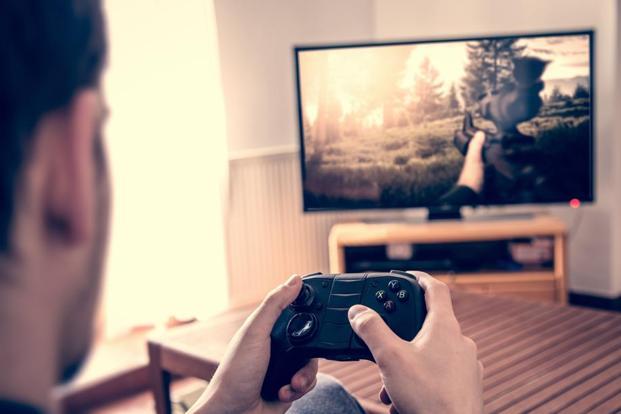What makes some online games so addictive that players are willing to harm themselves, even attempt suicide?
The Aerosol Challenge, a 2014 game, involved teenagers spraying themselves with deodorant at a distance of just a few inches from their skin, to see who could endure the pain the longest. It left some children with horrific burns.
In the Pass-out Challenge, young adults would choke themselves to the point of passing out in an attempt to reach an euphoric high—recording it all to post on social media.
The Fire Challenge saw people spraying themselves with flammable liquid and then setting it aflame, all for an online laugh. Neknominate had them drinking increasingly potent combinations of alcohol—this too led to some deaths. The Blue Whale game, the latest, sets tasks over a 50-day period, the last of which is jumping off a high-rise.
During Roman times, gladiatorial shows were a show of strength and violence. The Middle Ages turned execution into spectacle. Now, it’s online games like Blue Whale, says Shubha Madhusudhan, clinical psychologist, Fortis Hospital, Bengaluru. “We have always had narcissistic personalities, sadists and psychopathic deviants in our society,” she says. The internet has just made it easier for all of them to connect with the vulnerable.
But what makes online gaming so addictive?
Online games are a spiral of challenges and achievements
Most games are addictive because of the challenge involved, says Mehul Shah, a 24-year-old gamer who can understand the need to complete tasks, even in an extreme game like Blue Whale. “There’s constant competition, ranking boards, level up, which drive you to be the best amongst others. Once you’re in it, there’s no coming back and you strive hard to achieve the next level, the next goal.”
As a student, four years ago, he would log on to Dota 2, a multiplayer game, for 10-12 hours a day; now that he has a job, he plays for 2-3 hours a day. “Some gamers get so involved that they can’t differentiate between a real and virtual challenge. Completing the next task, reaching the final, is the only thing that matters even if it’s an extreme one,” says Shah.

The online games world is designed to suck you in, just like any other addiction, explains Sandeep Vohra, senior consultant psychiatrist, Indraprastha Apollo Hospitals, New Delhi. The first few levels are invariably easier, so they give you a sense of achievement, but as you go higher, the levels become tougher, and you have to spend more time and energy in getting the same high. “This sense of achievement targets the brain’s reward system and compels the gamer to perform the act again and again so as to dip into that pleasure of achievement again,” says Dr Vohra. There is an additional high: the feeling that you can solve something, even if it’s not a real-life issue, he adds.
Online games are free of expectations
Then there’s the anonymity that the online world offers, freeing you from societal and real-life expectations and responsibility, says Deepti Kukreja, consultant psychiatrist, Nanavati Super Specialty Hospital, Mumbai. “There is no control, no authority, no one is watching over you, and you can explore things, be someone else. All this makes it very, very tempting to experiment, seek out an adventure, take a risk,” she adds.
Some games and online challenges make you feel like a lord, agrees Himanshu Goyal, a Bengaluru-based entertainment marketing professional who has been a gamer since he was 9. The constant action makes you feel like you’re a hero, that you’re up to something amazing. “In real life, you might be a mediocre person with a 9-5 job, but in your virtual one, you become a game lord, a hero, people follow you, they look up to you, and that beats anything real life would offer,” says Goyal. He actually believes that decades of gaming has improved his reflexes and ability to think spontaneously.
Too much gaming, however, can blur the boundaries between virtual and real, says Manjiri Deshpande, psychiatrist, The Pediatric Network, a Mumbai-based child health support company: “You might get so involved in a game that you forget that in online games, heroes die and reappear in the next level, but in real life, the real world, it’s not possible.”
Games or experiments?
Challenges may be a big part of gaming online but Mumbai-based gaming professional Anuragh Saukat says self-mutilation has nothing to do with video games…
Read the complete article on Livemint.com

